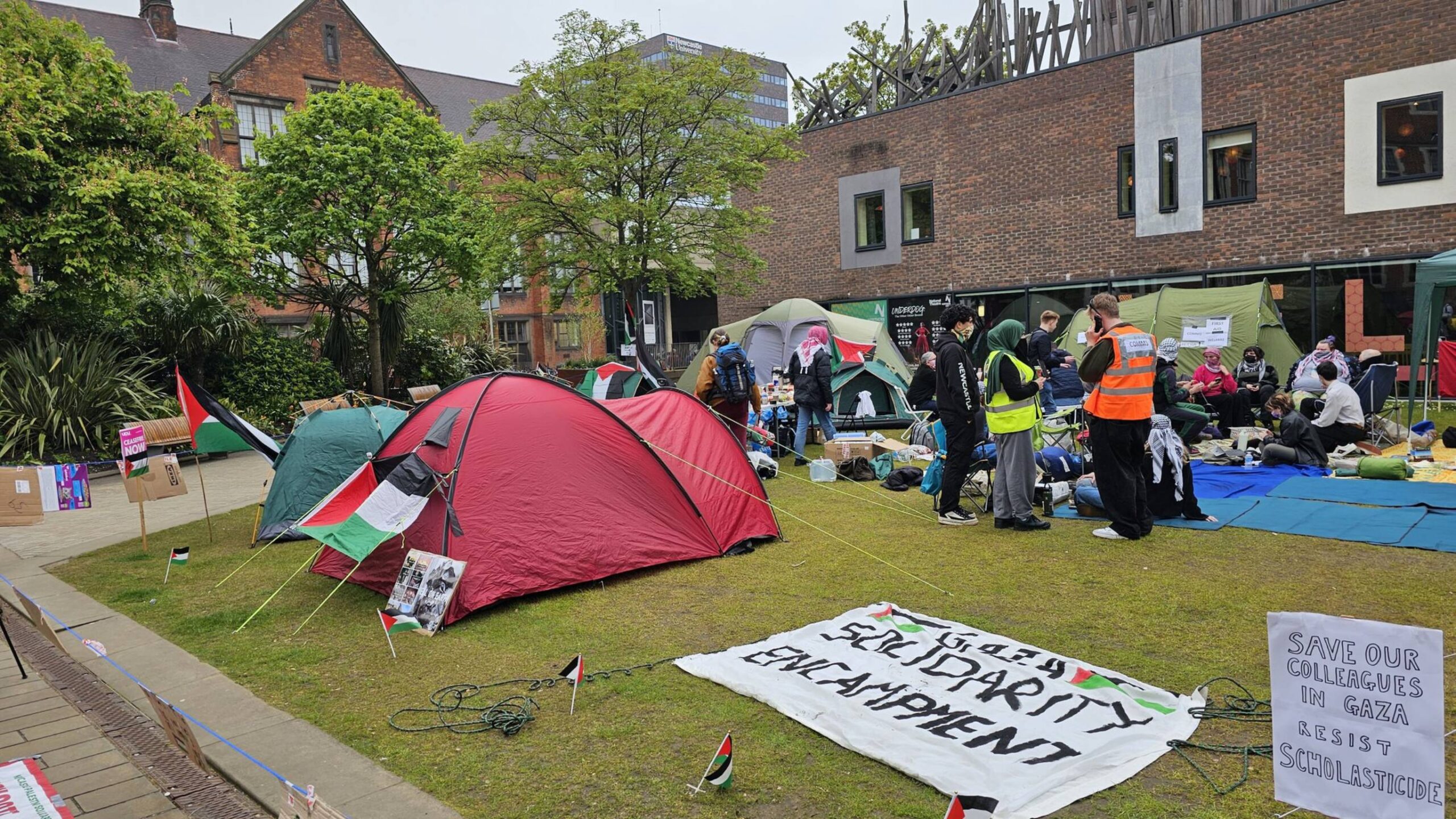It’s hard to keep up with the endless list of stories that concern the moral and practical clash between freedom from harm and freedom of speech.
It’s also hard to keep up with the proliferation of associations, bodies and groups that keep popping up to stage interventions to claim that freedom or safety on campus.
One of the latest is an outfit called the Committee for Academic Freedom (CAF). It argues that staff and students at UK universities should be free, within the limits of the law, to express any opinion without fear of reprisal; to not be compelled to express any opinion against their belief or conscience; and to not promote as a matter of official policy any political agenda, or affiliate themselves with organisations promoting such agendas.
A couple of weeks ago it picked up plenty of press coverage over the plight of Robert Ivinson – a University of Exeter student who said he was disciplined after a student next door in his halls of residence heard him saying “veganism is wrong” and “gender fluidity is stupid”.
The university seems to have declined all opportunities to publicly comment on the case, but if the student’s testimonial on the process he went through to receive disciplinary penalties is as he describes, it sounds like it has a case to answer on process, let alone judgement.
Not that it should matter per se, but the coverage omits to mention Ivinson’s apparent position as speaker secretary for the university’s Freedom Society – a “right-wing libertarian society” dedicated to “standing out from the stale politically correct orthodoxy” whose previous events include speeches “investigating the teachings of Nietzsche” and external speakers from the Institute of Economic Affairs.
Is it harassment?
Its most recent attempt at getting coverage involves an analysis of the Equality, Diversity and Inclusion (EDI) training courses in use at four London universities – Queen Mary University of London, King’s College London, University College London, and Imperial College London.
The argument is that the courses mis-state the law and compel staff to affirm “controversial” views about bias, stereotypes, disability models, and definitions of harassment – despite these topics being subject to significant debate within academic circles.
One particular criticism concerns the King’s College London Introduction to Equality, Diversity and Inclusion course. CAF says that it claims that “harassment is behaviour that makes someone feel intimated or offended” – but in doing so omits the “reasonableness test” – for behaviour to count as harassment, it must be “reasonable“ for it to have the effect of “creating an intimidating, hostile, degrading, humiliating or offensive environment”:
The mere fact that someone finds a behaviour offensive is not sufficient for that behaviour to constitute harassment. By omitting the reasonableness test, KCL presents the question of whether an action constitutes harassment as wholly subjective.
Protest camps
But these are minor skirmishes in the campus culture wars. The story that has captured the attention of the press all week has been escalating protests at US universities over the war in Gaza.
Protests began after a tent encampment was established by pro-Palestinian students at Columbia University, demanding divestment from companies profiting from what they call “Israeli apartheid”, ending business with military weapons manufacturers supplying Israel, ceasing acceptance of research funding from Israel intended for military use, increasing transparency about funds received from Israel, and stopping investment in companies that profit from Israeli operations.
Violent clashes with police ensued as students set up barricades and resisted dispersal, and the encampments have now spread to over 40 universities – with debates about the pros and cons of the involvement of police, the extent to which protesters are actually students and whether actions of the protesters amount to antisemitism swirling around for days.
The British press seemed desperate for the protests to spread to the UK for days – and now that a smattering have popped up, are deploying the usual mixed messages on student protests of any sort – oscillating between mockery of children playing at politics, and painting the protests as an existential threat to the future of the country.
Hence on the same day, The Times reports as follows:
By Wednesday evening, having peacefully weathered a small counter-protest by a group holding Israeli flags, some 20 students prepared to bed down for the evening. Before doing so, though, and with a shift rota system in place, half of the group decided to go for a pint.
…and has a leader comment warning as follows:
In a free society the right to political expression is inviolable; but its exercise is appropriately limited by the competing rights of others. There should be no tolerance for student protesters who attempt to intimidate their fellow students or who seek to paralyse the ordinary operation of university life.
At the time of writing we appear to have occupations or encampments at the universities of Sheffield, Bristol, Leeds, Newcastle, Manchester and Warwick – prompting Conservative leadership hopeful Penny Mordaunt to warn in Parliament that protesters should be met with “an extremely strict response” if they tried to replicate what she called the “disgusting” scenes happening in the US.
The Union of Jewish Students issued a statement in which they said Jewish students were “angry, tired and hurt” by the “continuous torrent of antisemitic hatred on campus” since the 7 October attacks by Hamas – adding that while students have a right to protest, the encampments create a “hostile and toxic” atmosphere on campus for Jewish students”
Let us be clear. We will not stand for this hatred. It’s time that universities took their duty of care to Jewish students seriously.
The University and College Union sent:
…solidarity to the many thousands of university students and staff across the world who are taking a stand against their institutions’ complicity in Israel’s genocidal war in Gaza.
Rishi Sunak’s official spokesperson then piped up with the usual description of the campus culture wars see-saw, this time with a sandbag on the harassment end:
We have always been clear that Jewish students must feel safe on campuses. Whilst our universities rightfully pride themselves on their openness and tolerance and diversity, it is obviously absolutely clear that any antisemitism shouldn’t be tolerated.
While we firmly believe in the power of rigorous free speech and debate, the right to that does not include the right to harass others or incite others to violence or terrorism.The police already have extensive public order powers to tackle disorder at protests and will continue to have our full support in doing so if needed.
Notably, there’s no mention of the Higher Education (Freedom of Speech) Act, nor any quote from the Office for Students – which is busy implementing the act and is about to introduce new regulation over universities’ prevention and handling of harassment on campus.
Conflict on campus
So what’s really going on here? Given the protest movement aims at challenging Israel, a self-declared “Jewish state”, there’s no doubt that it will attract antisemitic elements – even if the bulk of student participants neither intend to nor act in that way.
Meanwhile given the intertwining of Zionism with Jewish identity for many Jews, any criticism of Israel or Zionism can feel like personal attacks – even if those attacks largely don’t meet the “reasonableness” test that CAF is so keen to remind everyone of over EDI training.
What seems fairly clear is that the main aim of the protests both in the US and the UK is to address the situation in Gaza and Israel’s actions, not to propagate antisemitism. But there’s also no doubt that whether perpetrated by students or not, those movements can act as lightning rods for actual antisemitism – whose definition is in any case frequently contested at the margins.
As such and as ever, what tends to happen is that individual acts of antisemitism (and therefore harassment) get conflated in the press and politicians’ statements with something that the press and politicians have been arguing for a few years must be the subject of legally enhanced protection on campus.
There’s no room, any more, for reasonable doubt, or grey areas. You either secure it and champion it and promote it, or ban and fine and punish it. And frequently, folk argue that both approaches should be adopted over the same “it”.
And so we’re left with an old argument – about the way in which environments that are unpleasant for some but democratically necessary for others can act as a breeding ground for something much more insidious – and whether that in and of itself ever justifies banning, breaking it up or sending in the police.
As I’ve noted many times on the site before, the “twin sandbags” approach of warning universities and SUs with threats and fines if they restrict free speech, while simultaneously warning universities and SUs with threats and fines if they allow harassment – all while never, ever, recognising in public that there can be a fine line between the two – couldn’t be a less helpful approach to the real challenges being faced.
The problem isn’t that students should be able to claim free speech, and nor that they should be able to claim a campus free from harassment. It’s that the sandbags represent promises and protections for students that never require reconciliation.
That is not to suggest that a “hands around the tree, everyone should just get on with each other” approach to good campus relations is wise or even possible over a conflict of this sort. That’s not what I mean by reconciliation.
It is to suggest that regardless of the legal position, the vibes that promise students of any political stripe that their speech, however hurtful, will always be protected – while at the same time promising students that they will enjoy a “zero tolerance” approach to harassment – are simply not compatible in practice.
And so as universities and SUs prepare to induct students in September with training courses on EDI and parallel courses on free speech, the need to avoid the mistake of dumping those incompatible vibes onto students themselves is more important than ever.
What’s becoming clearer by the day is that neither the state nor its regulators are going to help – and that universities and their SUs’ will need to both assert their autonomy and find their bravery to find a way through.




